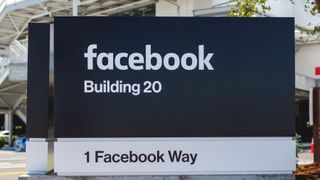Facebook Won't Require Disclosures on News Media Ads

Facebook said it will exempt "eligible" news outlets--first in the UK and then the U.S.--from having to put a "paid for" disclosure on online ads promoting stories that mention political figures, elections or issues of national importance.
It adopted the political ad disclosure requirements to combat fake news and election meddling, but does not want to crimp the style of legitimate news outlets trying to attract an audience.
Related: Facebook Faces Hill Ire Over Political Ad Tool
"We created the authorization process and launched new transparency initiatives to prevent foreign interference in elections," Facebook said in a post outlining the changes. "We included ads from news organizations in a separate section within the Ad Library because we had seen instances of foreign actors pretending to be news organizations. Our initial enforcement practices were intentionally broad.
But after news organizations complained, Facebook is modifying that as it "continually learns and improves" the process, and as it responds to political and public pressure to crack down on fake news.
Enforcement of the political ad disclosure policy begins in the UK today (Nov. 29), but news outlets can get authorized and will then be excluded from the Ad Library, which requires the "paid for" disclosure.
The News Media Alliance, which had formally complained about the political ad policy, celebrated the move.
Broadcasting & Cable Newsletter
The smarter way to stay on top of broadcasting and cable industry. Sign up below
"We are very pleased to learn of Facebook’s announcement that news organizations will be exempt from policies related to advertising of political figures, political parties, elections, and past referenda that are the subject of national debate in the UK," said Alliance president David Chavern. "We are also pleased to learn that this policy will be extended to the U.S. in the first half of next year. This move recognizes the role of journalism as the “fourth estate” of civic society. Globally, news publishers are in the business of reporting on news and events around the world to support and maintain an informed citizenry. They are not political advocacy organizations and should not be treated as such."
Contributing editor John Eggerton has been an editor and/or writer on media regulation, legislation and policy for over four decades, including covering the FCC, FTC, Congress, the major media trade associations, and the federal courts. In addition to Multichannel News and Broadcasting + Cable, his work has appeared in Radio World, TV Technology, TV Fax, This Week in Consumer Electronics, Variety and the Encyclopedia Britannica.

